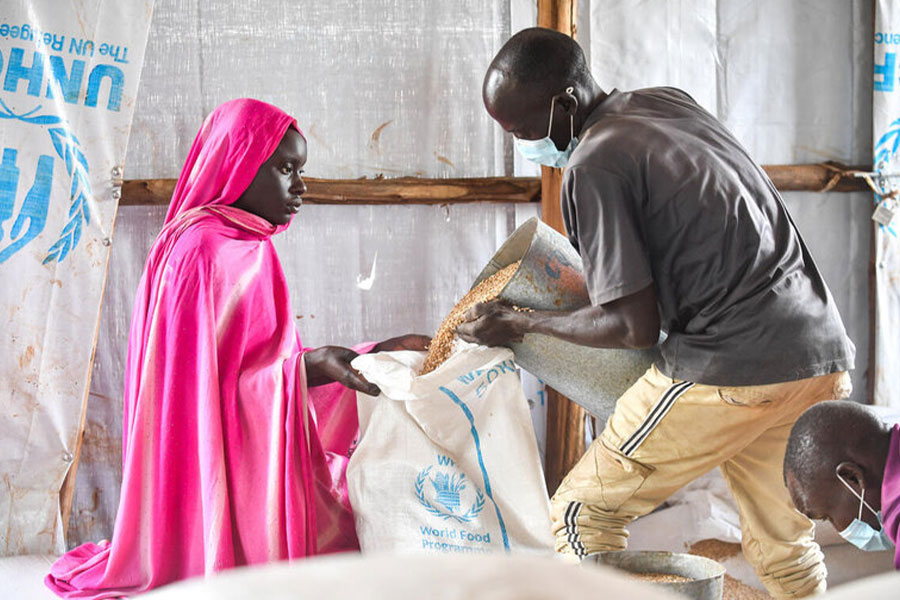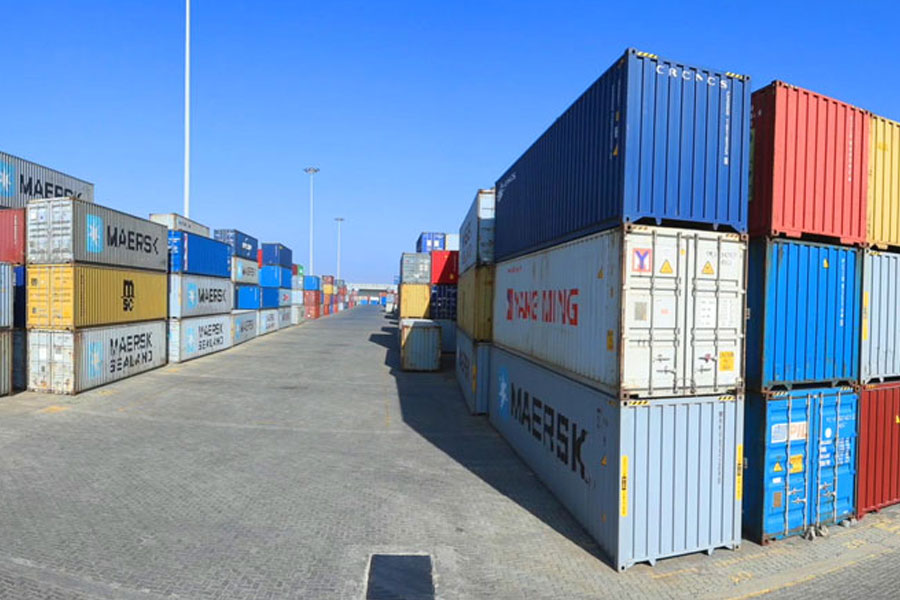
Radar | Oct 12,2025
Sep 18 , 2021
By Simon Zadek
The global food system is unsustainable. While it is worth approximately eight trillion dollars annually, its negative impact is valued at roughly 12 trillion dollars. This is not the system’s only contradiction. Around the world, food systems are both affected by climate change (owing to disruptive weather and rising temperatures) and make significant contributions to it (through greenhouse-gas emissions and biodiversity destruction). The millions of jobs they provide are often low-quality and poorly paid. And, most significantly, they fail in their ultimate purpose of delivering affordable, healthy food to all.
Because the global food system is fundamentally unviable, change is inevitable. But the radical reforms needed to create an inclusive, sustainable sector that produces nourishing food for the world’s population may have devastating short-term consequences. If we take the wrong approach, incorporating the true costs of production into food systems could trigger widespread bankruptcy, devastate rural unemployment, drive up prices, and increase poverty.
The best way to achieve a rapid, fair, and safe transition to a sustainable global food system that can deliver affordable, healthy food for all is, however, a matter of heated debate. This is reflected in the strident and largely unproductive discussions taking place in the run-up to the United Nations Food Systems Summit, to be held during the UN General Assembly this month.
From a production standpoint, advocates of regenerative farming vehemently oppose a new generation of soilless food production, such as lab-grown “alternate protein” and vertical farming. But it is tough to scale regenerative farming rapidly. Soilless systems must be a major part of the solution, given their dramatically reduced carbon footprint and water use, minimal impact on biodiversity, and potential for rapidly delivering cheap, healthy food at scale.
The role of finance in this transition is no less controversial.
There is some merit to complaints about the undue influence of a limited number of private players on decisions that impact the entire global food system. Financialisation – the drive to maximise risk-adjusted financial returns – is increasing across the global food system, and market concentration is growing. For example, just 10 companies control half of the world’s seed market, and four agribusiness firms account for 90pc of the global grain trade. Just one percent of agricultural firms own 65pc of the available farmland.
Financialisation reinforces the unequal distribution of economic returns, squeezing the incomes of small farmers and communities, while supporting business models that under-supply healthy, affordable food, and over-supply foods containing high levels of salt, sugar, fat, and carbohydrates. Moreover, financialisation amplifies corporate lobbying that externalises public-health costs, maintains perverse agricultural subsidies, and ensures that the costs to the climate and nature do not adversely affect financial bottom lines.
But private capital is absolutely necessary for financing the global food system’s transition. We need to harness the massive financial resources managed on our collective behalf by pension funds, banks, and private equity while mitigating the dangers of financialization.
In a recent report, "Making Finance Work for Food: Financing the Transition to a Sustainable Food System," the Finance for Biodiversity initiative maps out the role global finance can play in the needed transition. The report, prepared in association with the Food System Economics Commission, describes four ways financial tools can be used to shape future food systems.
For starters, financial policies and regulation, reinforced by shareholders and public activism, must drive investors’ internalisation of the costs to nature and climate in their financing decisions. This change would strand dirty assets, accelerate green-friendly investments, and trigger a shift toward more nutritious food production.
Second, financial innovations, including blended public and private solutions, are needed to accelerate investment in healthy food produced by climate- and nature-friendly forms of farming, thereby driving down costs. Such innovations could involve scalable instruments equivalent to the feed-in tariffs that have been used to great effect in catalysing investment in renewable energy.
Third, policies and public finance are needed to protect and retrain those whose livelihoods are eroded during the transition. The goal should be to provide technology, skill development, and capital to enable them to own and operate commercially viable regenerative and soilless forms of food production.
Finally, we need to create opportunities to empower citizens, especially by harnessing the power of digitalisation. As consumers, they can make an impact by adopting improved, sustainable diets. As investors, pension policyholders, and taxpayers, they can advocate for better uses of their money.
Delaying the transition to a more inclusive and sustainable global food system would jeopardise food security, destroy livelihoods, and prevent us from achieving environmental goals. We need to overcome the resistance not only of those who profit from today’s systems but also of those who seek to protect the vulnerable. Resetting global finance and harnessing its benefits is necessary to fund a rapid, sustainable, and equitable transition.
PUBLISHED ON
Sep 18,2021 [ VOL
22 , NO
1116]


Radar | Oct 12,2025

Commentaries | Jun 07,2025

Radar | Jul 23,2022

Radar | Sep 14,2024

Viewpoints | Apr 10,2021

Exclusive Interviews | Jun 24,2023

Sunday with Eden | May 09,2020

Viewpoints | Nov 30,2024

Fortune News | Jun 04,2022

Radar | Jan 07,2022

Photo Gallery | 180856 Views | May 06,2019

Photo Gallery | 171050 Views | Apr 26,2019

Photo Gallery | 162174 Views | Oct 06,2021

My Opinion | 137334 Views | Aug 14,2021

Dec 22 , 2024 . By TIZITA SHEWAFERAW
Charged with transforming colossal state-owned enterprises into modern and competitiv...

Aug 18 , 2024 . By AKSAH ITALO
Although predictable Yonas Zerihun's job in the ride-hailing service is not immune to...

Jul 28 , 2024 . By TIZITA SHEWAFERAW
Unhabitual, perhaps too many, Samuel Gebreyohannes, 38, used to occasionally enjoy a couple of beers at breakfast. However, he recently swit...

Jul 13 , 2024 . By AKSAH ITALO
Investors who rely on tractors, trucks, and field vehicles for commuting, transporting commodities, and f...

Nov 1 , 2025
The National Bank of Ethiopia (NBE) issued a statement two weeks ago that appeared to...

Oct 25 , 2025
The regulatory machinery is on overdrive. In only two years, no fewer than 35 new pro...

Oct 18 , 2025
The political establishment, notably the ruling party and its top brass, has become p...

Oct 11 , 2025
Ladislas Farago, a roving Associated Press (AP) correspondent, arrived in Ethiopia in...

Nov 2 , 2025
The National Bank of Ethiopia (NBE) has scrapped the credit-growth ceiling that had s...

Nov 2 , 2025 . By SURAFEL MULUGETA
The burgeoning data mining industry is struggling with mounting concerns following th...

Nov 2 , 2025 . By YITBAREK GETACHEW
Berhan Bank has chosen a different route in its pursuit of a new headquarters, opting for a transitional building instea...

Nov 2 , 2025 . By BEZAWIT HULUAGER
Nib International Bank S.C. has found itself at the epicentre of a severe governance...